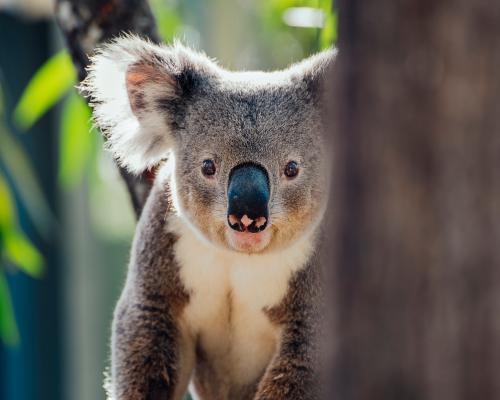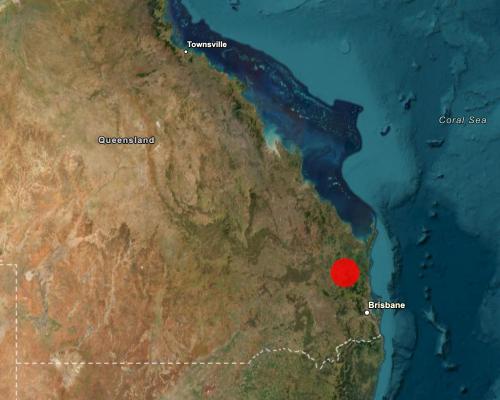
Habitat for threatened koalas that are part of a population described by one expert as nationally significant would be bulldozed under plans to extend a Queensland coalmine.
The campaign group Lock the Gate used drones with thermal imaging cameras to find 13 koalas in one night in trees earmarked for clearing by mining company Glencore.
Glencore wants to clear 680 hectares of land – including 600 hectares of koala habitat – to expand its Hail Creek mine west of Mackay.
Lock the Gate surveyed about a quarter of the area to be cleared in June using the drones.
“This is by far the most koalas we’ve ever seen in the path of a planned coalmine,” said the group’s Queensland coordinator, Maggie Mckeown.
-
Sign up to get climate and environment editor Adam Morton’s Clear Air column as a free newsletter
“The habitat next to Hail Creek coalmine is clearly a critical home for koalas.”
In 2022 the federal government raised the threat status for koalas in Queensland, New South Wales and the ACT to endangered after estimates suggested their numbers in those states had halved between 2001 and 2021.
Land clearing is one of the key threats facing the koala, alongside disease, traffic, logging and dog attacks.
Dr Bill Ellis, who leads the Koala Ecology Group at the University of Queensland, said the koalas at Hail Creek were part of the Clarke Connors Range population that was nationally significant because of its size and health, and was a genetically distinct group that existed across a range of habitats.
The high number of koalas detected by the drones confirmed the health of the population, he said.
He was sceptical that offsets – an option being considered by Glencore that puts alternative habitat aside – would be enough to protect the koalas. He said approving further coalmining would probably increase traffic on the Peak Downs Highway that connects Bowen Basin mines to Mackay and is a known death hotspot for koalas.
In an environmental assessment submitted to the Queensland government, consultants for Glencore said the impacts from the clearing would be “unavoidable and would adversely affect habitat critical to the survival of this species”.
About 600 hectares of habitat for the vulnerable squatter pigeon will also be cleared if the plans are approved, the assessment said.
UN-backed research revealed earlier this year that emissions of the potent greenhouse gas methane from the mine were likely between three and eight times higher than officially reported.
The extension plans are still before the state government and have not yet been sent to the federal government for environmental assessment.
But Lock the Gate, the Queensland Conservation Council (QCC) and the Mackay Conservation Group have written to the federal environment minister, Murray Watt, to ask for a moratorium on project applications in the area “until the population size, health and habitat [of koalas] can be thoroughly investigated”.
Charlie Cox, coal and gas campaigner at QCC, said koalas deserved the highest levels of protection but “in central Queensland they’re losing habitat to coalmining companies who bulldoze their homes and fuel the climate crisis”.
A Queensland government spokesperson said a decision on Glencore’s application to amend its state environmental authority was expected by late 2025.
A Glencore spokesperson said: “We are very aware of the importance of existing koala habitat. We are working closely with state and federal governments to deliver an effective environmental management plan to minimise impact on flora and fauna in the Hail Creek project area.”
The Guardian approached Watt for comment, but was referred to the Department of Climate Change, Energy, the Environment and Water.
A department spokesperson said it was aware of Glencore’s project, adding: “Any action that is likely to have a significant impact on a matter protected under national environment law must be referred to the department for consideration under the national environment law.”





